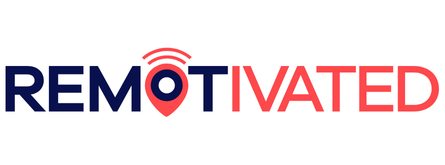Remote Reality Check: How to Spot Truly Remote-First Companies
This week's article is guest-written by Jim Coughlin at Remotivated
Three friends, three remote jobs, three wildly different realities.
My wife works at a remote-first company that went remote before it was cool. The company invests in their people and judges her work on output rather than hours logged. The result? She's happier, more productive, and talks about her company with genuine enthusiasm.
Meanwhile, I worked at a company that went remote during the pandemic. That organization had its moments - the initial flexibility was life-changing - but everyone was essentially playing defense. The intention was there, but the execution was patchwork.
Then there's my friend. He accepted a remote position only to discover his bathroom breaks were timed and that his screen and webcam were randomly recorded to ensure compliance. The "remote" in his job description simply meant "we won't pay for office space."
Three remote jobs. Three entirely different experiences.
The Remote Job Seeker's Dilemma
Distinguishing between truly remote-first cultures and those simply using “remote" as a recruiting tactic has become increasingly challenging. It’s not like the bad ones are going to list the cons for you on their careers page.
However, the stakes are high. A genuinely remote-first company can transform your work-life integration, career growth, and overall wellbeing. The wrong choice can leave you feeling micromanaged, isolated, and questioning whether remote work is viable at all.
So how do you separate the truly remote first companies from the pretenders? Here's your reconnaissance guide:
The Remote Company Evaluation Checklist
1. Scrutinize the Careers Page
Red flags:
Avoids using the word “remote” or only uses it in the location field of their job postings
Vague promises without specific policies
Stock photos instead of pictures of the actual team or only pictures of people in a physical office
Green flags:
Transparent remote work policies.
Detailed explanation of the hiring process.
Showcase of distributed team members or gatherings at offsites, conferences etc.
2. Analyze their LinkedIn Presence
What to look for:
Where do current employees actually live? Are they truly distributed or clustered near headquarters?
Do remote employees advance at the same rate as office-based colleagues? Look at how the locations of the executive team are distributed.
What do their company page and leadership team post about? Being remote is a huge competitive advantage. If leadership isn’t talking about it, there may be an RTO (Return to Office mandate) coming.
Employee engagement on social media. This can’t be forced so if employees are voluntarily promoting their employer on LinkedIn, that’s a great sign.
3. Glassdoor: Read Between the Lines
Search specifically for "remote" in reviews to see if employees have given feedback on when the company went remote and how well they've adapted.
Look for patterns, not outliers. Every company has a few negative reviews, but consistent themes around micromanagement, "butts in seats" mentality, or communication issues are red flags.
Be aware of the timeline. Glassdoor weighs all reviews equally when calculating a company's score, but context matters. If negative reviews all came during a specific period or are from years ago, that tells a different story than consistent ongoing concerns.
4. Social Proof and Third-Party Validation
The most telling indicator? Independent verification of remote culture. Companies truly committed to remote work often supply social proof and external validation through:
Remote work certification programs like Remotivated
Workplace awards and recognition
Speaking engagements at remote work conferences
These external validations matter because they require companies to expose their practices to outside scrutiny. Any organization can claim to be "remote-friendly" on their website. Far fewer can demonstrate it to independent evaluators which require employee verification of the company’s claims.
The Interview: Your Turn to Interrogate
Armed with this reconnaissance, you're ready for the final phase: turning the tables during interviews.
Ask specific questions to gauge the organization’s approach to remote work with questions such as:
What percentage of your leadership team works remotely full-time?
How do you measure productivity and outputs for this role?
What's your approach to asynchronous communication?
Listen carefully to the answers. Vague platitudes about "flexibility" or "trust" without specific policies or examples should raise concerns. Detailed answers that reference established practices indicate a mature remote culture.
Beyond the Job Description
Remote work exists on a spectrum. At one end, you'll find companies that have reimagined work entirely - building cultures of trust, autonomy, and genuine flexibility. At the other end are organizations that simply moved the surveillance and micromanagement of traditional offices into your home. What you experience depends entirely on where your employer falls on this spectrum.
By doing your homework before applying, you'll save yourself from the disappointment of discovering that "remote" means very different things to different employers. More importantly, you'll position yourself to find organizations where remote isn't just permitted – it's embedded in the company's DNA.
The best remote companies aren't just offering a location benefit; they're fundamentally rethinking how work happens. And that difference changes everything.
If you want extra help finding real remote jobs and strategies that will help position you for global remote opportunities, join the Remote Job Academy and learn how to land remote roles that actually fit your goals and lifestyle.
Stay Rebellious!
This week’s article is sponsored by Remotivated. Remotivated helps exceptional remote-first companies turn their culture into a competitive edge. Through their Top Remote Culture certification, they transform employee experiences into powerful social proof that attracts both top talent and loyal customers. The remote revolution already happened, and Remotivated is here to make sure it thrives.

